5 photos: Ancient brewery found in China
Scientists
analyzed the residue from the interior surface of the funnel to
determine some of the ingredients used by ancient brewers.
Hide Caption
3 of 5

5 photos: Ancient brewery found in China
Gelatinized starch grains from the funnel.
Hide Caption
4 of 5
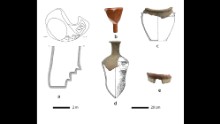
5 photos: Ancient brewery found in China
Researchers offered an idea of how the intact pottery pieces could have looked.
Hide Caption
5 of 5
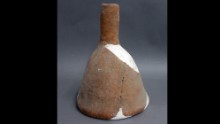
5 photos: Ancient brewery found in China
An ancient funnel found at the Mijiaya archaeological site in China's Shaanxi province.
Hide Caption
1 of 5
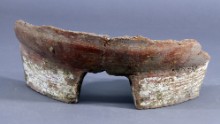
5 photos: Ancient brewery found in China
A fragment of a stove that scientists say was probably used to heat the fermenting grain mash during the beer-brewing process.
Hide Caption
2 of 5
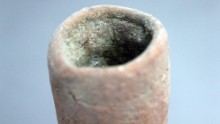
5 photos: Ancient brewery found in China
Scientists
analyzed the residue from the interior surface of the funnel to
determine some of the ingredients used by ancient brewers.
Hide Caption
3 of 5

5 photos: Ancient brewery found in China
Gelatinized starch grains from the funnel.
Hide Caption
4 of 5

5 photos: Ancient brewery found in China
Researchers offered an idea of how the intact pottery pieces could have looked.
Hide Caption
5 of 5

5 photos: Ancient brewery found in China
An ancient funnel found at the Mijiaya archaeological site in China's Shaanxi province.
Hide Caption
1 of 5

5 photos: Ancient brewery found in China
A fragment of a stove that scientists say was probably used to heat the fermenting grain mash during the beer-brewing process.
Hide Caption
2 of 5

5 photos: Ancient brewery found in China
Scientists
analyzed the residue from the interior surface of the funnel to
determine some of the ingredients used by ancient brewers.
Hide Caption
3 of 5
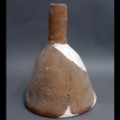
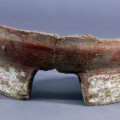
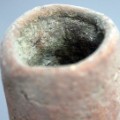

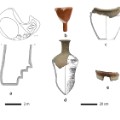
Story highlights
- Archaeologists found an ancient brewery in China
- The beer "may have contributed to the emergence of hierarchical societies"
- Even God likes beer, according to the Hebrew Bible
(CNN)An
archeological find in China may be the first evidence that beer was an
important product in China many years before the experts originally
thought. It may have even inspired the development of a sophisticated
society.
Archeologists from
Stanford University unearthed what they think is an ancient brewery at
the Mijiaya site in China's Shaanxi province. Their findings were
published in the latest edition of PNAS.
The
team found two subterranean pits with beer-making equipment that
included funnels, pots and amphorae holding the residue of what probably
was 5,000-year-old beer.
"The
shapes and styles of the vessels show stylistic similarities to the
brewing equipment in the historical period and modern ethnographic
records," said study co-author Jiajing Wang.
The
archeologists believe the pits would have acted like an ancient cooler,
helping in the beer-making process and with storage.
A
pottery stove found in each pit may have been used to keep the
ingredients at the optimal temperature for mashing, a technique similar
to what you would see in beer-making today.
Tests
of the yellow residue show the presence of barley, broomcorn millet,
tubers and Job's tears (also known as Chinese pearl barley or coix
seed), which were fermented together to make what probably would have
been a sweet and sour kind of brew.
"This
beer recipe indicates a mix of Chinese and Western traditions: barley
from the West, millet, Job's tears, tubers from China," Wang said.
The
experts suggest, though, that you shouldn't run right out to try that
recipe in your home operation, as the ancients may have included other
ingredients in their concoctions that were lost to time.
Barley was the big surprise, as it has never been detected in archaeological materials from China that were this old.
The
authors argue that barley was probably introduced into the area for
beer making. They don't believe people were using it for food until much
later, although more research is needed to prove that theory.
Earlier
research has shown that beer has long been a part of Chinese culture.
It gets a mention in the written record in the late Shang dynasty (circa
1250-1046 B.C.).
A short, intoxicating history of beer
Ancient
humans' love of beer has also been known for decades. Some
archeologists argue that it was that love, and not an interest in
breakfast or bread, that led to the domestication of cereals around
9500-8000 B.C. Up to 40% of the annual cereal crop in Mesopotamia may
have gone to the production of beer.
Archeologists have found evidence of 11,000-year-old brewing troughs at Gobekli Tepe in Turkey.
Beer was also the national drink in Mesopotamia and Egypt, according to research from Xavier University theologist Michael Homan. You could get paid in beer or pay for your bride with it. It was used as medicine and as a cosmetic.
There
are ancient gods dedicated to beer, like the Sumerian goddess Ninkasi,
who has her own drinking hymn. Temples kept their own brewers on the
payroll.
Even
the modern God (i.e. Yahweh), was believed to have a sizable drinking
habit. The ancients were encouraged to offer it as a daily libation as is mentioned in the Hebrew Bible, Numbers 28: 7-10.
The benefits of beer
Beer
in the ancient world was used much like it is now, as a kind of social
lubricant. ("Hey, handsome ancient Sumarian stonecutter, let me buy you a
beer. You come here often?"). Beer has also been found in paintings at ancient brothels.
But
it also served in a more important everyday role: Beer was a much safer
alternative to drinking water in the pre-Brita-filter era. The alcohol
killed many of the microorganisms you'd find in your local watering
hole.
In this study, the authors
suggest that beer drinking, often a habit we associate more with frat
parties than with sophisticated fêtes, may have actually spawned a
social complexity not seen in Chinese culture previously.
Public
buildings from that time period suggest a kind of hierarchy in the
culture. It may have had an elite class that engaged in a kind of
competitive feasting and drinking.
Beer,
the researchers argue, "may have contributed to the emergence of
hierarchical societies." In other words, it may have been one of the
driving forces behind the development of sophisticated cultures in an
area known as the cradle of Chinese civilization.
The development of beer bellies, however, is probably a more modern phenomenon

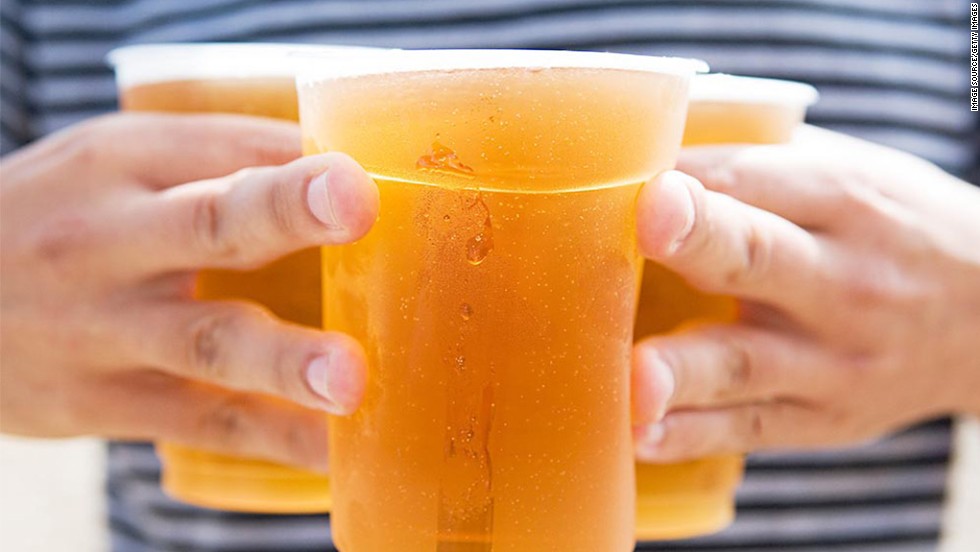
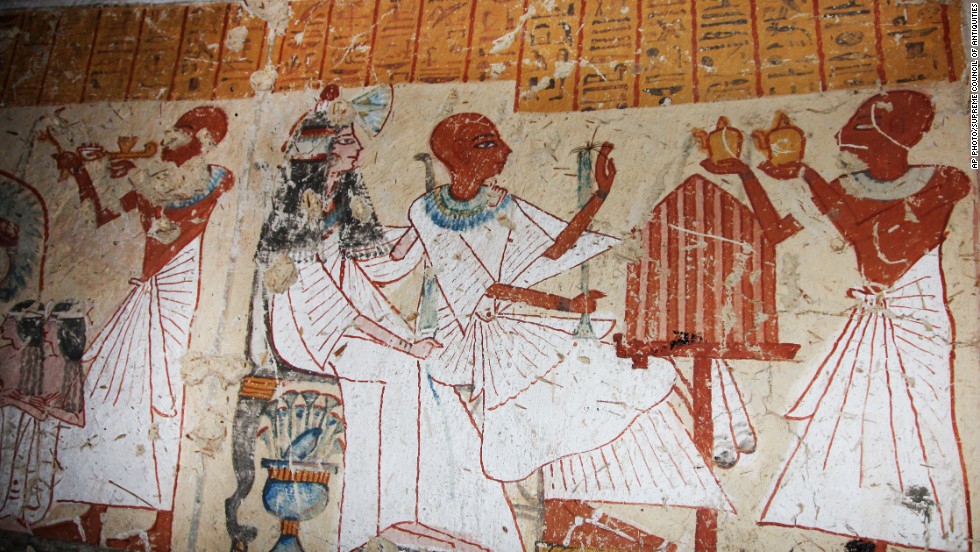







0 Comments